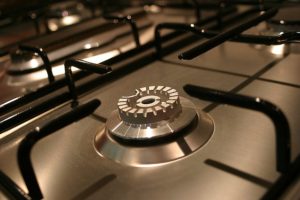Choosing between the two options for heating and providing heat to your premises and in mobile settings should no longer be a hair-splitting exercise. The following guide breakdown the pros and cons of each choice. You end up with a narrowed decision-making process and a clear winner of the two considering any of the criteria you would be following. The set up for the comparison is easy. You will be looking at the features of one against those in the other option and make a choice based on your preference for having the feature as essential or optional. Here is the ultimate comparison of gas stove vs electric stoves, which one is better ?

Efficiency
Cooking on electric stoves appears as the most efficient way to go, but appearances can be deceiving. Gas stoves rely on the gas moving to the mixer tube to combine with air when ignited thus releasing flame that burns with a blue color. Modern stoves will use an electric spark to ignite and will be instantly hot. In the electric stove, you do not have precise control and can end up wasting energy as you dial up or down. It takes time for the plate or coil to be hot and subsequently to get cold, which implies that you would be losing several minutes with each cook time. Gas stoves with electronic ignition can lead to more than 40% energy savings.
Price
The tag price for the two options is almost the same unless you are differentiating between the brands available in the market and the specifications for the stove. Otherwise, the cost of buying equally specified stores with either energy source should be about the same. Differences can only be according to the profit margins for a particular store, the shipping charges, and the assumed demand of the given store, which tends to affect price disproportionately.
Cost of Running
The cost of electricity and gas affects the running costs of your stove. The cost of electricity tends to be constant over several years while gas prices fluctuate yearly. However, you can compensate for higher gas bills with the efficiency of energy consumption for the stove. Meanwhile, there are no options for regulating the energy consumption of the electric stove other than the provided regulation mechanism, which is not as efficient as the one in the gas stove.
Ease of Use
Most people will find electric stoves as complicated when using them because they will heat up quicker or slower than expected and a cook will be hard-pressed to provide a decent meal with such conditions. The gas burners are easy to regulate since heat comes on instantly and chances based on the turning of the gas outlet pressure and available air for mixing. The electricity plate or coil in the burner can hold heat much longer after switching the stove off, and that can be inconvenient when your food needs particular temperature settings to simmer.

Safety
Electric stoves are unsafe for regular use around children because of the potential of having hot plates and coils a few minutes after switching them off. Gas stoves present a possible blow-up risk when there is a gas leak. However, you can install gas leak sensors and also make sure to switch off gas supply after switching off the burner.
Gas stoves are cheaper overall and preferable than electric stoves.
